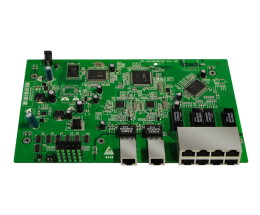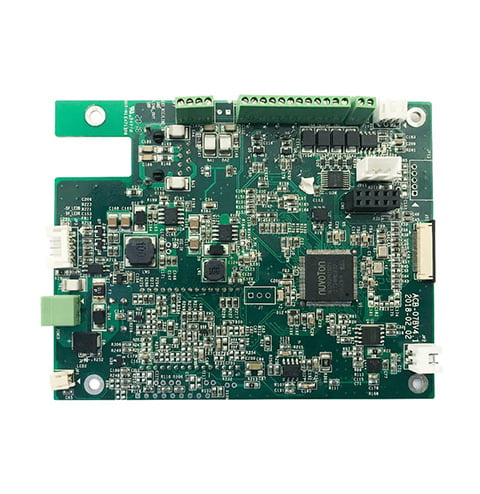PCB Assembly Service Factory: Your One-Stop Shop for High-Quality Circuit Board Manufacturing
If you’re in the business of creating electronic devices, you know how important it is to have reliable printed circuit boards. You can’t afford to have a faulty board or a design that doesn’t work as intended. That’s why it’s essential to have a trustworthy PCB assembly service factory on your side. These factories specialize in producing high-quality PCBs to your exact specifications.

When you work with a PCB assembly service factory, you’ll have access to a team of experts who can help you with every step of the process. From design to production, they’ll be there to ensure that your project is a success. They can help you choose the right materials, create a design that meets your needs, and produce a final product that meets your exact specifications. With their help, you can be confident that your project will be a success.
When you’re looking for a PCB assembly service factory, there are a few things to keep in mind. First, you’ll want to look for a company with a proven track record of success. You’ll also want to make sure that they have the equipment and expertise necessary to produce high-quality PCBs. Finally, you’ll want to choose a company that offers competitive pricing and excellent customer service. With these factors in mind, you can find a PCB assembly service factory that will meet your needs and help you create the electronic devices you need to succeed.
Overview of PCB Assembly Services

If you are looking to manufacture electronic devices, PCB assembly services are essential. PCB assembly is the process of assembling electronic components onto a printed circuit board (PCB) to create a functional electronic device.
PCB Assembly Process
The PCB assembly process involves several steps, including component placement, soldering, inspection, and testing. Component placement involves placing the electronic components onto the PCB. Soldering is the process of melting a metal alloy to join the electronic components to the PCB. Inspection is the process of checking the quality of the soldering and component placement. Testing is the process of verifying that the electronic device works as intended.
Types of PCB Assembly
There are two types of PCB assembly: Through-hole assembly and Surface Mount Technology (SMT) assembly. Through-hole assembly involves inserting the electronic components through holes in the PCB and soldering them in place. SMT assembly involves placing the electronic components directly onto the surface of the PCB and soldering them in place. SMT assembly is the most commonly used method today due to its smaller size, lower cost, and higher speed.
When choosing a PCB assembly service factory, it is important to consider their expertise and equipment. Look for a factory with experience in your specific industry and the ability to handle your project’s unique requirements. You should also consider the factory’s quality control measures, such as testing and inspection, to ensure that the final product meets your specifications.
Capabilities of a PCB Assembly Service Factory

When choosing a PCB assembly service factory, it is important to consider their capabilities. A good PCB assembly service factory should be able to handle all aspects of the assembly process, from component sourcing to quality assurance and testing.
Component Sourcing
One of the most important capabilities of a PCB assembly service factory is their ability to source high-quality components. A good factory should have established relationships with reputable component suppliers and be able to source components quickly and efficiently. They should also be able to work with you to select the best components for your project, taking into account factors such as cost, performance, and availability.
Quality Assurance and Testing
Another key capability of a PCB assembly service factory is their ability to ensure the quality of the finished product. A good factory should have rigorous quality assurance and testing processes in place to catch any defects or errors before the final product is shipped. This may include visual inspections, automated testing, and functional testing.
Prototyping and Mass Production
Finally, a good PCB assembly service factory should be able to handle both prototyping and mass production. They should have the equipment and expertise to quickly and efficiently produce small batches of prototypes for testing and validation. Once the design is finalized, they should be able to scale up production to meet your needs, whether you need a few hundred or a few thousand units.
In summary, when choosing a PCB assembly service factory, it is important to consider their capabilities in component sourcing, quality assurance and testing, and prototyping and mass production. A good factory should be able to handle all aspects of the assembly process and ensure the quality of the finished product.
Advanced Technologies in PCB Assembly
When it comes to PCB assembly, there are various advanced technologies that can be used to produce high-quality circuit boards. In this section, we will discuss some of the most commonly used advanced technologies in PCB assembly.
Surface-Mount Technology
Surface-mount technology (SMT) is a popular method of PCB assembly that involves mounting components directly onto the surface of the PCB. This method is widely used due to its high level of accuracy and the ability to produce smaller, more compact devices. SMT components are typically smaller and lighter than through-hole components, which allows for more components to be placed on a single board. This technology is used in a wide range of applications, including consumer electronics, medical devices, and automotive electronics.
Through-Hole Technology
Through-hole technology (THT) is another method of PCB assembly that involves mounting components through holes in the PCB. This method is typically used for larger components that require a higher level of stability and durability. THT components are typically larger and heavier than SMT components, which makes them more suitable for applications that require a higher level of mechanical strength. This technology is commonly used in applications such as power supplies, amplifiers, and industrial controls.
Automated Optical Inspection
Automated optical inspection (AOI) is a technology that uses cameras and software to inspect PCBs for defects and errors. This technology is used to ensure that PCBs are manufactured to the highest level of quality and accuracy. AOI is capable of detecting a wide range of defects, including missing components, misaligned components, and solder defects. This technology is commonly used in high-volume production environments where speed and accuracy are critical.
In summary, there are various advanced technologies that can be used in PCB assembly to produce high-quality circuit boards. SMT and THT are two popular methods of PCB assembly that are used for different types of components. AOI is a technology that is commonly used to ensure that PCBs are manufactured to the highest level of quality and accuracy.
Industry Standards and Certifications
When choosing a PCB assembly service factory, it’s important to consider the industry standards and certifications they hold. These certifications ensure that the factory follows the highest quality and safety standards, which will ultimately result in a better product for you. Here are some of the most important industry standards and certifications to look for:
ISO Certifications
ISO 9001 and ISO 14001 are two of the most common certifications for PCB assembly service factories. ISO 9001 is a quality management standard that ensures the factory has a quality management system in place to ensure customer satisfaction and continuous improvement. On the other hand, the ISO 14001 certification is relevant to environmental management, ensuring that the factory follows environmentally friendly practices and reduces waste.
IPC Standards
IPC is an association that focuses on the standardization of assembly and production of electronic equipment. They issue a number of certifications and offer training and testing courses to those interested in obtaining those certifications. IPC-2221 is a generic standard for the design of PCBs. Within the 2220 series, there are also specifications for specific PCBs such as rigid, flex, and MCM-L. It addresses design layout, parts lists, materials, mechanical and physical properties, electrical properties, thermal management, and more. Ensuring that the factory follows IPC standards for PCB design and assembly is important for producing high-quality and reliable products.
RoHS Compliance
RoHS stands for Restriction of Hazardous Substances, which is a European Union directive that restricts the use of certain hazardous materials in electronic products. PCB assembly service factories that are RoHS compliant ensure that their products are free from hazardous materials such as lead, mercury, cadmium, and more. This is not only important for the safety of the end-users but also for the environment.
By choosing a PCB assembly service factory that holds these certifications, you can be confident that your products will meet the highest quality and safety standards.






